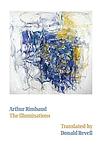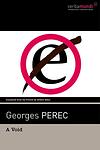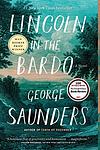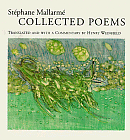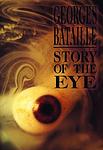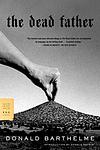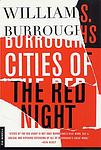The Greatest French, American "Experimental" Books of All Time
Click to learn how this list is calculated.
This list represents a comprehensive and trusted collection of the greatest books. Developed through a specialized algorithm, it brings together 305 'best of' book lists to form a definitive guide to the world's most acclaimed books. For those interested in how these books are chosen, additional details can be found on the rankings page.
Genres
The "Experimental" category of books is characterized by works that challenge traditional literary conventions and push the boundaries of form and content. These books often incorporate unconventional narrative structures, language, and themes, and may experiment with different mediums such as poetry, visual art, or multimedia. The goal of experimental literature is to create new and innovative ways of storytelling that challenge readers' expectations and expand the possibilities of what literature can be.
Countries
Date Range
Reading Statistics
Click the button below to see how many of these books you've read!
Download
If you're interested in downloading this list as a CSV file for use in a spreadsheet application, you can easily do so by clicking the button below. Please note that to ensure a manageable file size and faster download, the CSV will include details for only the first 500 books.
Download-
26. Illuminations by Arthur Rimbaud
"Illuminations" is a collection of prose poems that delve into the author's vivid dreamlike visions and his exploration of his inner psyche. These poems are filled with symbolic imagery and metaphors that challenge traditional poetic norms. The author uses his work to express his disillusionment with the conventional world, his longing for spiritual enlightenment, and his quest for personal freedom. The collection is a testament to the author's innovative style and his significant influence on modernist literature.
The 1474th Greatest Book of All Time -
27. JR by William Gaddis
The novel is a satirical critique of capitalism, narrating the story of an 11-year-old boy who builds a vast financial empire from his school's payphone. Using the adults around him as pawns, he manipulates the system to his own advantage, turning junk bonds into high profits. The narrative unfolds almost entirely through dialogue, making it a challenging but rewarding read. The book is a commentary on the American dream, exploring themes of greed, exploitation, and the dehumanizing effects of capitalism.
The 1496th Greatest Book of All Time -
28. The Ravishing of Lol Stein by Marguerite Duras
The Ravishing of Lol Stein is a novel that explores the life of the eponymous character, who is traumatized by her fiancé's betrayal at a ball. This event leads her into a mental breakdown, after which she returns to her hometown and marries an older man. However, her life takes a turn when she becomes obsessed with a young couple, leading her to question her own sanity and reality. The book delves into themes of love, obsession, and the thin line between sanity and madness.
The 1499th Greatest Book of All Time -
29. Sixty Stories by Donald Barthelme
"Sixty Stories" is a collection of short narratives that use unconventional, experimental structures to explore a range of themes. The book is known for its absurdist and postmodern style, and the stories often feature elements of parody, surrealism, and satire. The tales cover a wide array of topics, including art, literature, philosophy, and the human condition, all presented with a unique blend of humor, wit, and intellectual depth.
The 1534th Greatest Book of All Time -
30. The Bald Soprano by Eugène Ionesco
"The Bald Soprano" is a play that explores the absurdity of everyday life through a nonsensical narrative. It revolves around two middle-class English couples, the Smiths and the Martins, who engage in meaningless and repetitive conversations. The play is known for its unconventional structure, lack of plot, and the characters' surreal behavior, which are all used to satirize the banality and futility of routine and social norms. The title refers to a character who is never seen or mentioned again after the opening scene.
The 1558th Greatest Book of All Time -
31. A Void by Georges Perec
This novel is a unique and complex piece of literature, written entirely without the use of the letter 'e'. The story follows a group of individuals trying to solve the mysterious disappearance of a friend, while also dealing with their own personal struggles and existential crises. The narrative is filled with wordplay, puzzles, and allusions, and the absence of the letter 'e' serves as a metaphor for loss and absence in the characters' lives.
The 1562nd Greatest Book of All Time -
32. Lincoln in the Bardo by George Saunders
The novel is set in a graveyard over the course of a single night and is narrated by a dazzling chorus of voices. The story is centered around the death of President Lincoln's 11-year-old son Willie, who resides in the Bardo, a transitional state between life and rebirth in Tibetan tradition. As Willie interacts with the other spirits stuck in this realm, his father visits the crypt to mourn, causing a struggle among the ghosts over the boy's soul. The narrative explores themes of grief, the impermanence of life, and the unresolved issues that keep us from moving on.
The 1585th Greatest Book of All Time -
33. The Female Man by Joanna Russ
"The Female Man" is a thought-provoking science fiction novel that explores the lives of four women from different dimensions and time periods. As they navigate their respective worlds, the women confront gender inequality, societal expectations, and the limitations imposed on them by a patriarchal society. Through their encounters and conversations, the novel challenges traditional gender roles and offers a powerful critique of sexism and discrimination.
The 1632nd Greatest Book of All Time -
34. W, or the Memory of Childhood by Georges Perec
"W, or the Memory of Childhood" is a unique blend of autobiographical recollections and fictional narrative. The novel alternates between two storylines: one describing the childhood of a Jewish boy during World War II, and the other detailing a dystopian society on a mysterious island known as "W". The book explores themes of memory, trauma, and the loss of innocence, while also offering a critique of totalitarian regimes. The two narratives gradually converge, revealing the traumatic underpinnings of the protagonist's life and the allegorical nature of "W".
The 1743rd Greatest Book of All Time -
35. Tender Buttons by Gertrude Stein
"Tender Buttons" is an avant-garde collection of prose poetry, divided into three sections: "Objects," "Food," and "Rooms." The book is renowned for its experimental, stream-of-consciousness style, and its abstract, often nonsensical language. It challenges traditional narrative and linguistic structures, creating a unique exploration of everyday objects and experiences. The work is a significant contribution to modernist literature and a pioneering example of feminist writing.
The 1761st Greatest Book of All Time -
36. Sleepless Nights by Elizabeth Hardwick
"Sleepless Nights" is a novel that weaves together memories, reflections, and fictionalized episodes to paint a portrait of a woman's life. The narrative is fragmented and non-linear, reflecting the protagonist's introspective journey through her past relationships, experiences, and observations. Set against the backdrop of various American and European backdrops, the book delves into themes of love, loss, identity, and the complexities of the human condition. The protagonist's musings are interlaced with vivid character sketches of the people who have drifted in and out of her life, creating a tapestry of poignant and evocative vignettes that capture the essence of her restless, contemplative existence.
The 1780th Greatest Book of All Time -
37. Paris Spleen by Charles Baudelaire
The book is a seminal work in the history of prose poetry, capturing the modern urban experience through a series of short, lyrical pieces. It delves into the psychological landscape of the city, exploring themes of melancholy, ennui, and the search for beauty amidst the squalor of Parisian life in the mid-19th century. The author's sharp observations and vivid imagery reflect his complex relationship with the city, oscillating between a deep love for its vibrant culture and a profound sense of alienation. This collection of prose poems is considered a touchstone for modernist literature, influencing generations of writers and poets with its innovative style and introspective depth.
The 1793rd Greatest Book of All Time -
38. The Erasers by Alain Robbe-Grillet
The book is a complex and innovative narrative that blurs the lines between reality and imagination, following a detective who is investigating a series of connected murders in a nameless town. As the detective delves deeper into the case, the story unfolds in a non-linear fashion, challenging the reader's perception of time and causality. The novel's structure, characterized by repetitive descriptions and a lack of clear resolution, reflects the themes of uncertainty and the elusiveness of truth, ultimately questioning the nature of existence and the reliability of memory and perception.
The 1819th Greatest Book of All Time -
39. Collected Poems by Stéphane Mallarmé
"Collected Poems" is a compilation of poetic works by a renowned French poet. The book offers readers a deep exploration into the intricate world of symbolism and the power of language. The author's artistic use of words to create vivid imagery and evoke profound emotions is evident throughout the collection. His poems delve into themes of reality, dreams, and the interplay between the two, offering a unique perspective on the human experience.
The 1840th Greatest Book of All Time -
40. Two Serious Ladies by Jane Bowles
Two Serious Ladies is a novel that follows the lives of two women, Christina Goering and Frieda Copperfield, who are both on their own personal journeys of self-discovery. Christina, a wealthy spinster, decides to abandon her comfortable life to explore the darker side of society, while Frieda, a married woman, leaves her husband during a trip to Panama to pursue a relationship with a teenage prostitute. The novel explores themes of identity, sexuality, and societal norms, challenging traditional notions of femininity and respectability.
The 1927th Greatest Book of All Time -
41. Blue of Noon by Georges Bataille
"Blue of Noon" is a provocative novel set in 1930s Europe during the rise of fascism. The story follows the life of an Englishman living in Paris, who is embroiled in a self-destructive cycle of sexual escapades and political extremism. His journey takes him through various European cities, where he engages in debauchery and encounters the political turmoil of the time. The book explores themes of existentialism, nihilism, and the human condition, offering a dark and complex portrayal of a man's struggle with his inner demons and the chaotic world around him.
The 1981st Greatest Book of All Time -
42. For a New Novel by Alain Robbe-Grillet
"For a New Novel" is a collection of essays by a prominent French writer and filmmaker, where he challenges the traditional norms of narrative and character development in novels. The author argues for a new form of novel, one that focuses more on the objectivity of description and the presentation of things as they are, rather than on the psychological analysis of characters. He criticizes the conventional novel for its reliance on plot, causality, and character development, and instead proposes a novel that is more concerned with the surface of things, their materiality and their presence in space and time.
The 2018th Greatest Book of All Time -
43. The Dead Father by Donald Barthelme
The book is a surreal, postmodern narrative following a group of characters as they drag the physical manifestation of their dead father across a variety of landscapes. The characters grapple with their relationships to the father figure, exploring themes of authority, control, and the nature of storytelling itself. The novel is known for its experimental style, blending a range of literary techniques and genres to create a unique, fragmented narrative.
The 2028th Greatest Book of All Time -
44. Anagrams by Lorrie Moore
The novel revolves around the complex relationship between Benna Carpenter, an aerobics instructor and Gerard, a college professor. Benna constantly imagines different scenarios and alternate lives for herself and Gerard, including one where they have a daughter. The narrative structure of the book is unique, with each chapter presenting a different 'anagram' or version of Benna's life, reflecting her chaotic and imaginative inner world.
The 2168th Greatest Book of All Time -
45. Wittgenstein's Mistress by David Markson
The novel is a stream-of-consciousness narrative from the perspective of a woman who believes she is the last human on earth. She shares her thoughts, memories, and experiences in a non-linear and often confusing manner. The narrative is filled with cultural and historical references, creating a haunting and profound exploration of loneliness, memory, and the human condition.
The 2199th Greatest Book of All Time -
46. The Collected Stories Of Lydia Davis by Lydia Davis
The collection is a compendium of short fiction that showcases the author's deftness in capturing the intricacies of human experience through precise, often experimental prose. The stories range from the very brief to the more developed, exploring themes of language, memory, and the often overlooked moments of everyday life. With a unique voice that combines wit, keen observation, and a mastery of form, the author challenges traditional narrative structures, inviting readers to engage with the text on multiple levels and to find meaning in the spaces between the words as much as in the words themselves. The result is a body of work that is both intellectually stimulating and emotionally resonant, cementing the author's reputation as a significant figure in contemporary literature.
The 2314th Greatest Book of All Time -
47. Cities of the Red Night: A Novel by William S. Burroughs
"Cities of the Red Night: A Novel" is a surreal, hallucinatory narrative that intertwines three storylines: an 18th-century pirate crew seeking utopia, a detective investigating a series of grotesque murders, and a pandemic causing spontaneous orgasms. The novel explores themes of homosexuality, anarchism, and the occult, using its disjointed narrative structure to challenge traditional understandings of time, space, and reality.
The 2352nd Greatest Book of All Time -
48. Impressions of Africa by Raymond Roussel
In this surrealistic novel, a group of Europeans are stranded in Africa after their ship is hijacked by a local monarch. While held captive, each of the characters narrates a fantastical tale or performance, showcasing their unique talents and skills. The narrative is filled with bizarre inventions, intricate wordplay, and a dizzying array of subplots, all of which are eventually woven together in a complex and cryptic manner. The novel is a testament to the author's imagination and his ability to create a world that is both strange and captivating.
The 2443rd Greatest Book of All Time -
49. The Vice-Consul by Marguerite Duras
This novel follows the story of three lonely, dispossessed people in Calcutta, India: a troubled former French diplomat, a young French woman haunted by her past, and a poverty-stricken Indian woman. As their lives intersect, they grapple with desire, despair, and the struggle for redemption. The narrative is a complex exploration of colonialism, privilege, and the human condition, told through the lens of these three characters' tragic and intertwined lives.
The 2443rd Greatest Book of All Time -
50. Arcanum 17 by André Breton
"Arcanum 17" is a surrealist exploration of love, loss, and resurrection set amidst the backdrop of World War II. Drawing inspiration from the legend of Melusina, the author uses the symbolism of this mythic figure to discuss the role of women in society and the destructive nature of war. The narrative also delves into themes of renewal, rebirth, and the power of the feminine, all while using the surrealist style to blend reality and dream in a poetic and philosophical discourse.
The 2443rd Greatest Book of All Time
Reading Statistics
Click the button below to see how many of these books you've read!
Download
If you're interested in downloading this list as a CSV file for use in a spreadsheet application, you can easily do so by clicking the button below. Please note that to ensure a manageable file size and faster download, the CSV will include details for only the first 500 books.
Download